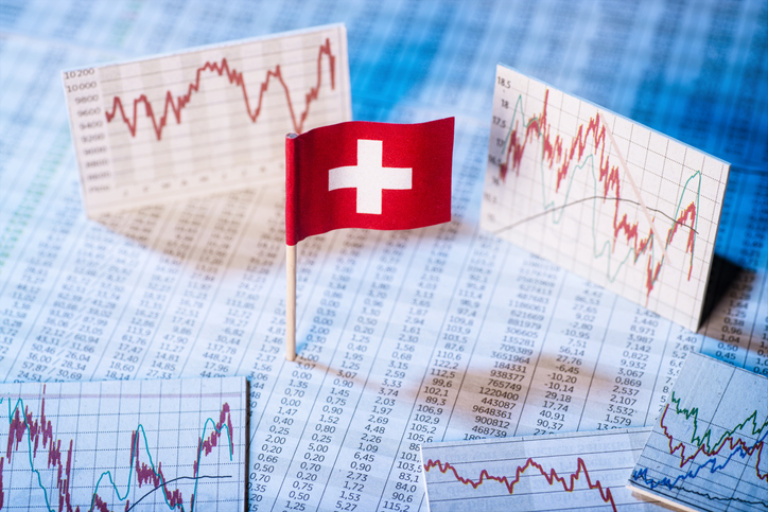Is the Swiss currency rocket taking off?
Switzerland is sitting on a ticking currency time bomb: the Swiss franc. What has been regarded as a sign of stability and solidity for years could prove highly explosive in the event of a new global economic shock. While the Swiss Confederation shines as a safe haven with one of the lowest debt ratios in the world and a credible monetary stability policy pursued by the SNB, it is precisely this status that threatens to become a challenge.
Capital inflows from all over the world could cause the CHF to appreciate massively. This opens up opportunities for investors, but puts pressure on the real economy.
- Debt, weak currencies, and uncertain markets in the US and EU are pushing up the Swiss franc
- What would be the impact of a further sharp appreciation?
- The financial market as arbiters
Switzerland in the crosshairs
Until the national holiday on August 1, Switzerland had been largely spared from the erratic policies of the US government under President Trump. Then it hit us too. Washington directed its next attack specifically at Switzerland, particularly the pharmaceutical industry. The isolated focus on Switzerland’s trade surplus with the US came at just the right moment to make an example of it. Overnight, so to speak, the “Made in Switzerland” seal of quality became a problem. Swiss companies became the target of US tariffs and regulatory harassment – not because of poor performance, but because of their success. For a small, open economy that thrives on free trade and comparative advantages, this is a shock
The new tariffs are hitting an industrial location that can withstand pressure. The structurally strong Swiss franc—the result of low inflation and high international competitiveness—has acted as a fitness program for exporters for years. Accordingly, the markets remained calm, unlike the media and politicians.
Global context: debt, weak currencies, uncertain markets
- USA
With the debt-financed “One Big Beautiful Bill Act,” US debt continues to rise. A weaker dollar is politically desirable, which has already affected the euro and the Swiss franc.
- Europe
Germany’s fiscal stimulus is boosting growth in the short term, but could lead to higher forms of joint debt in the form of Eurobonds. The euro is thus moving towards becoming a weak currency.
The financial market as arbiter
In the new world, those in power do as they please. Reliable rules are unilaterally suspended. The limits of this power politics will not be set by smaller and weaker countries, but by the financial market. This is because higher government debt is only possible as long as it is absorbed by the financial market, i.e., bought and held by market participants. When this is no longer the case, investor demand falls and long-term interest rates rise. This has major consequences for the bond market, which can lead to financial market instability: a so-called “Liz Truss” moment.
The latest US plans to exempt banks from capital adequacy requirements for government bonds and to appoint controversial figures to key positions are also fueling doubts. Creditors of USD-denominated investments should exercise caution.
Switzerland: both a safe haven and a risk factor
In this uncertain world, Switzerland remains a special case. Investors value stability, low debt, and a credible central bank. But the greater the global uncertainty, the stronger the inflow of capital and the greater the risk of a massive appreciation of the CHF. This may be attractive to international investors, but for the domestic export industry it is a sword of Damocles. However, past experience shows that for foreign investors, currency gains sometimes outweigh price losses on Swiss equities.
Options for action and recommendations
In theory, Switzerland has various options for responding, ranging from SNB interventions and government investments to a national investment fund. However, in the short term, the only politically realistic option is monetary policy support from the National Bank.
For investors, the following applies in this environment:
- Swiss dividend stocks remain a stable core investment – both for companies focused on the domestic market and for global corporations.
- Government bonds in weak currencies such as the USD and EUR should be avoided
- Real assets in weak currencies – stocks rather than nominal values – make sense
- Gold remains indispensable as a hedge and anchor of stability
Switzerland remains a safe haven, but the strong franc is a ticking currency time bomb. At the same time, the financial markets, acting as arbiters, are warning that even the most powerful countries cannot flout the rules indefinitely. This opens up opportunities for investors, but puts pressure on the real economy. It is crucial to remain calm, prioritize quality, and seize opportunities when others panic. Those who know in advance what to do in the event of a currency shock can act calmly.






